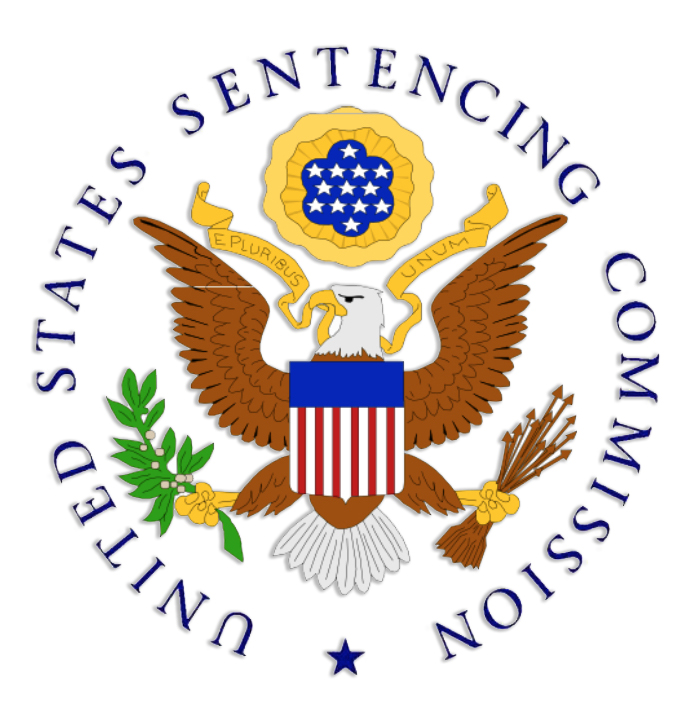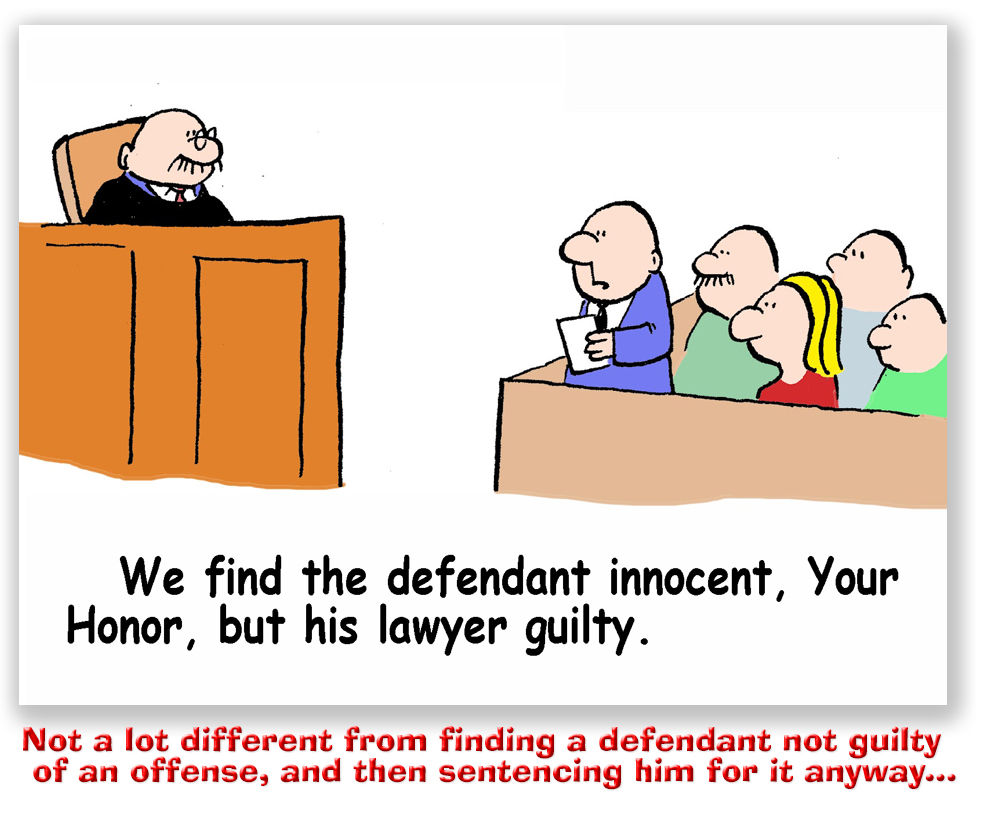We post news and comment on federal criminal justice issues, focused primarily on trial and post-conviction matters, legislative initiatives, and sentencing issues.

MOVING RIGHT ALONG…
 Last Thursday the U.S. Sentencing Commission acted with uncharacteristic alacrity, adopting proposed amendments for the 2024 amendment cycle about a month earlier than has been typical over the past 30 years.
Last Thursday the U.S. Sentencing Commission acted with uncharacteristic alacrity, adopting proposed amendments for the 2024 amendment cycle about a month earlier than has been typical over the past 30 years.
The Commission proposes seven changes in Guideline policy in a 755-page release, the most anticipated of which is the use of acquitted conduct at sentencing.
The Commission proposes adopting one of three acquitted conduct options:
Option 1 would amend § 1B1.3, the “relevant conduct” Guideline, to provide that acquitted conduct is not relevant conduct for determining the guideline range. It would define “acquitted conduct” as conduct constituting an element of a charge of which the defendant has been acquitted by the court, except for conduct establishing the instant offense that was “found by the trier of fact beyond a reasonable doubt.”
Option 2 would amend the § 1B1.3 Commentary to provide that a downward departure may be warranted if the use of acquitted conduct has a “disproportionate impact” on the guideline range.
Option 3 would amend USSG § 6A1.3 (which addresses the standard of proof required to resolve Guidelines disputes) to provide that while a “preponderance of the evidence” standard generally is sufficient, acquitted conduct should not be considered unless it is established by clear and convincing evidence.
 The Supreme Court last June denied 13 petitions for writ of certiorari related to use of acquitted conduct in sentencing. Four Justices felt the Commission should first address the issue. US District Judge Carlton W. Reeves, chairman of the USSC, said, “When the Supreme Court tells us to address an issue, the Commission listens… [A]ll options are on the table.”
The Supreme Court last June denied 13 petitions for writ of certiorari related to use of acquitted conduct in sentencing. Four Justices felt the Commission should first address the issue. US District Judge Carlton W. Reeves, chairman of the USSC, said, “When the Supreme Court tells us to address an issue, the Commission listens… [A]ll options are on the table.”
The USSC proposal also addresses counting juvenile convictions for criminal history. The Commission proposed changes that would limit the impact of those convictions on criminal history scoring and expand consideration of a defendant’s youth at sentencing.
One piece of bad news is the Commission’s proposal to undo the effects of the 2019 Supreme Court Kisor v. Willkie decision. A year ago, the 3rd Circuit relied on Kisor in United States v. Banks to hold that the loss enhancement under USSG § 2B1.1(b)(1) includes only what was actually lost. The Circuit reasoned that the word “intended” appears only in the 2B1.1 commentary and not in the Guideline itself, and thus “the loss enhancement in the Guideline’s application notes impermissibly expands the word ‘loss’ to include both intended loss and actual loss.”
Sentencing for “intended loss” is the fraud equivalent of “ghost dope“: Often, “intended loss” is what the government says it is, and that figure shoots the Guidelines sentencing range to the moon.
Banks sparked a debate on how much deference to give the Sentencing Commission’s interpretation of its own Guidelines. The 3rd said the USSC lacked authority to use its commentary – which is not subject to Congressional approval before adoption – to expand the meaning of “loss” to include what was intended but did not happen.
 The USSC now intends to short-circuit the Kisor v. Willkie debate (and to kneecap the Banks decision) by moving “intended loss” from the commentary into the text of 2B1.1. Because that amendment will be subject to a possible (but improbable) veto by Congress veto, the Kisor v. Willkie problem with 2B1.1 will melt as fast as snowflakes on a hot stove.
The USSC now intends to short-circuit the Kisor v. Willkie debate (and to kneecap the Banks decision) by moving “intended loss” from the commentary into the text of 2B1.1. Because that amendment will be subject to a possible (but improbable) veto by Congress veto, the Kisor v. Willkie problem with 2B1.1 will melt as fast as snowflakes on a hot stove.
The USSC drew its proposed amendment from policy priorities adopted last August. Not making the final cut were policy priorities on career offender (and not for the first time) and methamphetamine.
The proposed amendments will be open for public comment period until February 22, 2024. A public hearing will occur after that. Final proposed amendments will be sent to Congress by May 1 to become effective next November 1, 2024.
USSC, Proposed Amendments to the Sentencing Guidelines (Preliminary) (December 14, 2023)
USSC, US Sentencing Commission seeks comment on proposals addressing the impact of acquitted conduct, youthful convictions, and other issues (December 14, 2023)
USSC, Public Hearing (December 14, 2023)
USSC, Federal Register Notice of Final 2023-2024 Priorities (August 24, 2023)
United States v. Banks, 55 F.4th 246 (3d Cir. 2022)
Bloomberg Law, Wall Street Fraudsters Rush to Cut Prison Terms With New Ruling (November 1, 2023)
– Thomas L. Root

